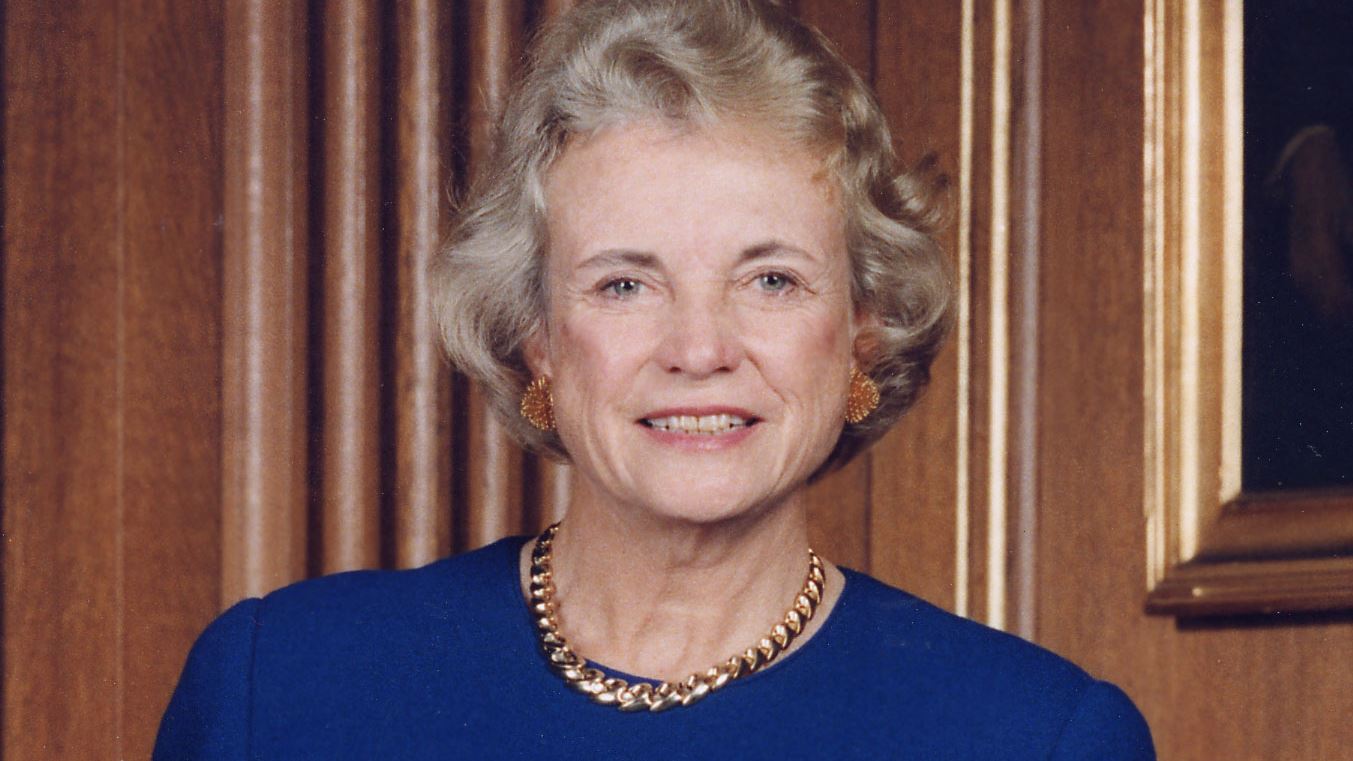Supreme Court Justice Sandra Day O’Connor Papers Open for Research at the Library of Congress
A major portion of the papers of Supreme Court Associate Justice Sandra Day O’Connor, consisting of approximately 600 containers, opens for research use March 11, in the Manuscript Division of the Library of Congress. The collection documents the trajectory of O’Connor’s life in politics and law at the state level in Arizona and later nationally, as the Supreme Court’s first woman justice.
Appointed to the court in 1981, O’Connor served until retiring in early 2006. The case files in the collection document O’Connor’s role as the court’s crucial deciding vote and to varying degrees capture the internal workings of her chambers as well as discussions among her eight peers in determining the constitutionality of the nation’s laws. The Sandra Day O’Connor Papers also chronicle O’Connor’s rise in Arizona state politics as a legislator and judge and her ascension to the national stage.
O'Connor donated her papers to the Library of Congress in 1990, and they arrived in installments from 1991 to 2008.
O’Connor’s papers join those of more than three dozen other justices and chief justices of the Supreme Court available for research at the national library, including John Marshall, Thurgood Marshall, Hugo Black, Earl Warren, Harry A. Blackmun, William J. Brennan, Ruth Bader Ginsburg and John Paul Stevens.
While serving more than two decades on the court, O’Connor participated in numerous significant decisions on issues ranging from the First Amendment in Lynch v. Donnelly (1983) and Wallace v. Jaffree (1984) to abortion rights in City of Akron v. Akron Center for Reproductive Health (1982), Planned Parenthood v. Casey (1992) and Webster v. Reproductive Health Services (1989). Considered the swing vote on the court, O’Connor was often at the center of many cases when she did not author a majority opinion or dissent.
At this time, the case files and docket sheets are open to researchers through the October Term 1990. Access to cases heard by the court from the 1991 through 2005 terms remains closed to researchers as long as any justice who participated in the decision of a case continues to serve on the Supreme Court. Other material open to researchers from her tenure as a justice includes correspondence, administrative files relating to her nomination, speeches, and writings by O’Connor. Also open for research are files relating to her political and judicial career in Arizona, book manuscripts and other writings, and selected family papers.
About Justice Sandra Day O’Connor
Sandra Day O’Connor was born in El Paso, Texas in 1930. Growing up in Arizona, O’Connor attended Stanford University for both undergraduate and law school. After law school, she served as the first deputy county attorney in San Mateo, California, assistant attorney general for the state of Arizona, and entered politics as a state legislator, rising to the position of majority leader in the Arizona State Senate. After retiring from the state senate, O’Connor was appointed to Arizona’s Superior and Appellate Courts. President Ronald Reagan appointed her to the Supreme Court in 1981.
How to Conduct Research in the Manuscript Division
Access to the O’Connor Papers will be on a first-come, first-serve basis to researchers in the Manuscript Division Reading Room.
A finding aid provides guidance on the contents of the O’Connor Papers and is available in both HTML and PDF formats.
Patrons can make copies of collection items consistent with current photocopy and scanning procedures – and staff will also encourage researchers to use smartphones to make single-copy reproductions to reduce the handling of originals.
Patrons must follow normal procedures before gaining access to the collection, such as obtaining a reader registration card, a process they can begin online in advance of visiting. Personal belongings must be secured in lockers, and all reading room rules and regulations must be followed. For additional information about using the Manuscript Division’s collections, please visit the division’s website.
The Library of Congress is the world’s largest library, offering access to the creative record of the United States — and extensive materials from around the world — both on-site and online. It is the main research arm of the U.S. Congress and the home of the U.S. Copyright Office. Explore collections, reference services and other programs and plan a visit at loc.gov; access the official site for U.S. federal legislative information at congress.gov; and register creative works of authorship at copyright.gov.
###
Media Contacts: Brett Zongker, bzongker@loc.gov; Maria Peña, mpena@loc.gov
PR 24-027
03/11/2024
ISSN 0731-3527

